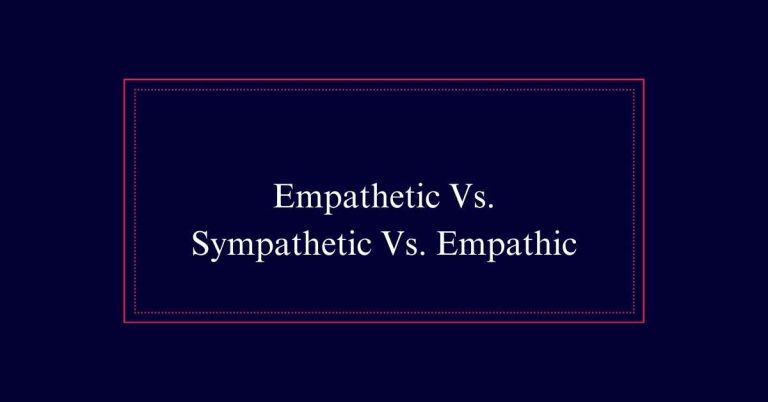What Does Luv Mean?
‘Luv’ is an informal, non-standard spelling of ‘love’, often used to convey casual affection. It situates emotionally between ‘like’ and ‘love’. This term has been in use since at least 1825 and is prevalent in texts, social media, and casual conversations.
Unlike its formal counterpart, ‘luv’ should be avoided in professional or formal contexts where it may appear unprofessional. Its usage generally imparts a light-hearted tone, suited for informal interactions.
Definition of ‘Luv’
‘Luv’ is a non-standard spelling of the word ‘love,’ often used informally. It has been in use since at least 1825 and can denote affection in a casual context.
The term ‘luv’ is frequently employed to represent certain dialectal pronunciations of ‘love’ and sits between ‘like’ and ‘love’ on the emotional spectrum. Unlike the traditional spelling, ‘luv’ may not carry the same emotional weight.
It is often seen in texts, social media, and casual conversation. While it can express fondness, its informal nature means it should be used cautiously, especially in formal writing.
Historical Origins
The term ‘luv’ has been in use since at least 1825, reflecting its long-standing presence in the English language. This non-standard spelling emerged as a colloquial representation of ‘love.’ It often mimics certain dialects and informal speech patterns.
The simplification of spelling aligns with the phonetic pronunciation in various English dialects. Over time, ‘luv’ has been adopted in informal communication, including letters, text messages, and social media. Its use signifies a more casual form of affection, distinct from the traditional ‘love.’
The spelling ‘luv’ has endured through centuries, adapting to modern contexts while retaining its informal charm.
Emotional Spectrum
While ‘luv’ has a long historical presence, its place on the emotional spectrum offers further insight. The term ‘luv’ often conveys a level of affection that is lighter than ‘love’ but stronger than ‘like.’ This distinction can be useful in various contexts where the intensity of emotion needs to be nuanced.
Understanding ‘luv’ in this way helps to refine communication. It allows for expressing affection without the heaviness that ‘love’ might imply.

Informal Vs. Formal Use
In informal contexts, ‘luv’ can effectively convey casual affection or friendliness. It is often used in text messages, social media posts, and casual conversations. The non-standard spelling adds a light-hearted tone, making it suitable for interactions among friends or close acquaintances.
However, in formal contexts, the use of ‘luv’ is generally discouraged. Professional settings, academic papers, and official documents require standard language to maintain clarity and formality. Using ‘luv’ in such environments can be perceived as unprofessional and may diminish the seriousness of the message.
Spelling Differences
Understanding the informal versus formal use of ‘luv’ naturally leads to examining its spelling differences from ‘love.’ The term ‘luv’ represents a non-standard spelling. This difference often signals a casual tone or an attempt to reflect certain dialectal pronunciations.
‘Luv’ is commonly used in texts, social media, and informal communications, whereas ‘love’ is preferred in formal contexts.
Key points to explore regarding ‘luv’ include:
- Emotion: ‘Luv’ tends to carry lighter emotional weight than ‘love.’
- Context: ‘Luv’ is more suitable for informal settings.
- Perception: ‘Luv’ may be seen as playful or colloquial.
Pronunciation Variations
Pronunciation of ‘luv’ can vary greatly based on regional accents and dialects. In some areas, ‘luv’ may sound almost identical to ‘love,’ while in others, it may have a distinct pronunciation.
For example, in certain British dialects, ‘luv’ might be pronounced with a softer, more rounded vowel sound compared to the American pronunciation. This variation can affect how ‘luv’ is perceived and understood in different contexts.
Additionally, the informal nature of ‘luv’ often lends it a more relaxed and colloquial pronunciation. Understanding these nuances can enhance communication, especially in diverse linguistic settings.
Contextual Usage
Considering the diverse pronunciations of ‘luv,’ its contextual usage becomes an important aspect to explore. ‘Luv’ is often used informally to express affection without the intensity of ‘love.’
Its usage can vary based on the relationship between the speaker and the listener, as well as the specific context in which it appears.
- Casual Relationships: ‘Luv’ is frequently used among friends or acquaintances to convey a light-hearted affection.
- Text Messaging and Social Media: ‘Luv’ is popular in digital communication due to its brevity and informal tone.
- Cultural Nuances: Different cultures may interpret ‘luv’ differently, affecting its reception and appropriateness.
Dialectal Representation
‘Luv’ often mirrors the phonetic characteristics of regional dialects, reflecting how ‘love’ is pronounced in various accents. This representation is particularly evident in British English, where ‘luv’ is commonly used in informal settings. The spelling captures the softer, more relaxed pronunciation often heard in casual speech.
It is not just limited to British English; ‘luv’ appears in various forms across different English-speaking regions. The term serves as a written form that emulates spoken language, providing a sense of authenticity and relatability. By using ‘luv,’ writers can convey a conversational tone, making their text feel more personal and engaging.
Common Examples
In everyday language, ‘luv’ is frequently used to express affection in a more casual and informal manner. This spelling of ‘love’ often appears in text messages, social media, and casual conversations.
Here are some common examples:
- Texting: ‘I luv u’ is a common phrase that shows affection without the formality of ‘I love you.’
- Nicknames: People often use ‘luv’ as a term of endearment, such as ‘Hey, luv, how was your day?’
- Casual Speech: In some dialects or regions, ‘luv’ is used in everyday speech, like ‘Thanks, luv’ when speaking to friends or acquaintances.
Audience Considerations
When using ‘luv,’ it is important to take into account the audience to guarantee that the intended meaning is effectively conveyed. The term ‘luv’ is informal and may not be suitable for professional or formal contexts. It is often used in casual conversations, text messages, and social media.
Understanding the audience’s familiarity with the term is key. For instance, younger individuals and those accustomed to internet slang may interpret ‘luv’ as affectionate but less intense than ‘love.’ In contrast, older generations or those less familiar with slang might find it confusing or too casual.






